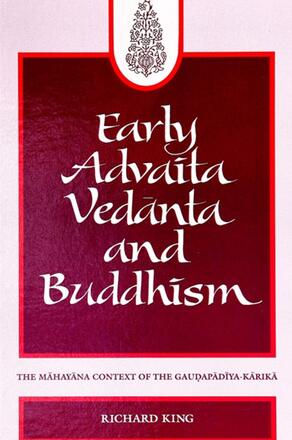
Early Advaita Vedānta and Buddhism
The Mahāyāna Context of the Gauḍapādīya-Kārikā
Alternative formats available from:
This book provides an in-depth analysis of the doctrines of early Advaita Vedanta and Indian Mahayana Buddhism in order to examine the origins of Vedanta.
Description
This book provides an in-depth analysis of the doctrines of early Advaita and Buddhism that has important implications for the question of the relationship between Hindu and Buddhist thought. The author examines the central doctrines of the Gaudapadiya-karikain a series of chapters that discuss early Advaita in relation to the Abhidharma, Madhyamaka, and Yogacara schools of Buddhism. The question of the doctrinal diversity of Indian Buddhism is also discussed through an analysis of the concept of 'Buddha-Nature' and its relationship with Vedantic thought.
Richard King is Lecturer in Religious Studies in the Department of Religious Studies at the University of Stirling, Scotland.
Reviews
"The complex relationship between the Vedantic world of ideas and that of the Mahayana Buddhists has for a long time been either completely ignored by traditionalist Hindu scholars, or summarily paid lip service to by Western scholars as a form of 'crypto-Buddhism. ' Therefore, a thoroughgoing and well-documented investigation of each and every major Vedantic work's indebtedness to the Buddhist conceptual framework is of great importance for the understanding of Indian philosophical progress. " -- F. G. Sutton, Pace University
"King's fine grasp of Mahayana thinking enables him to read the Gaudapadiya-karika with insight and develop his argument with cogency. " -- John P. Keenan, Middlebury College